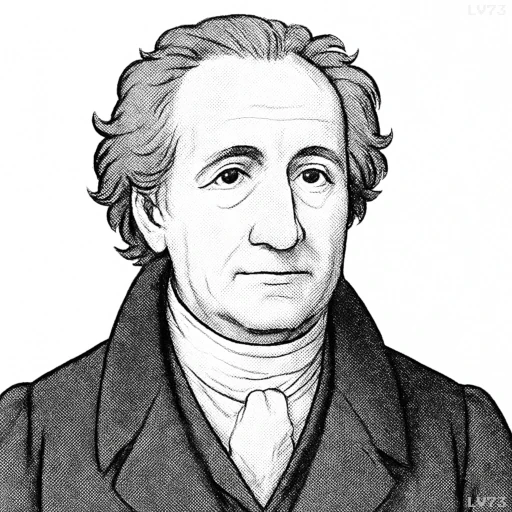“If God had wanted me otherwise, He would have created me otherwise.”

- August 28, 1749 – March 22, 1832
- German
- Poet, playwright, novelist, philosopher, politician
table of contents
Quote
“If God had wanted me otherwise, He would have created me otherwise.”
Explanation
Goethe expresses the idea of accepting oneself as part of the larger plan of existence. He suggests that we are all created with our own unique characteristics, qualities, and paths in life, and if we were meant to be different, we would have been created differently. This statement emphasizes self-acceptance and the understanding that who we are—in terms of our personality, abilities, and circumstances—is a result of a higher design or purpose. It calls for a recognition of one’s inherent nature and the importance of embracing it, rather than wishing for a different version of oneself.
Historically, this idea aligns with the philosophical and spiritual themes of fate, destiny, and self-acceptance. In the Romantic and Enlightenment periods, thinkers like Goethe grappled with concepts of individualism, freedom, and the nature of existence, often suggesting that we should understand ourselves as part of a larger cosmic order. Goethe’s statement reflects an attitude of humility and peace in accepting one’s nature and place in the world, acknowledging that any other form of being would have been beyond one’s control.
In modern contexts, this idea resonates with the self-acceptance movement in psychology and personal development. The idea of embracing who we are and understanding that we are exactly as we are meant to be is central to mindfulness and self-compassion practices today. It encourages letting go of the constant desire for change or comparison and finding peace in our own uniqueness and purpose. The notion also helps reduce feelings of inadequacy or regret over things that are beyond our control, fostering a more authentic and empowered way of living.
Goethe’s words remind us to embrace who we are with grace and acceptance, recognizing that our nature and circumstances are a reflection of a broader purpose or plan. Rather than wishing to be otherwise, we should focus on fulfilling our own potential and understanding the value in our unique existence.
Would you like to share your impressions or related stories about this quote in the comments section?


